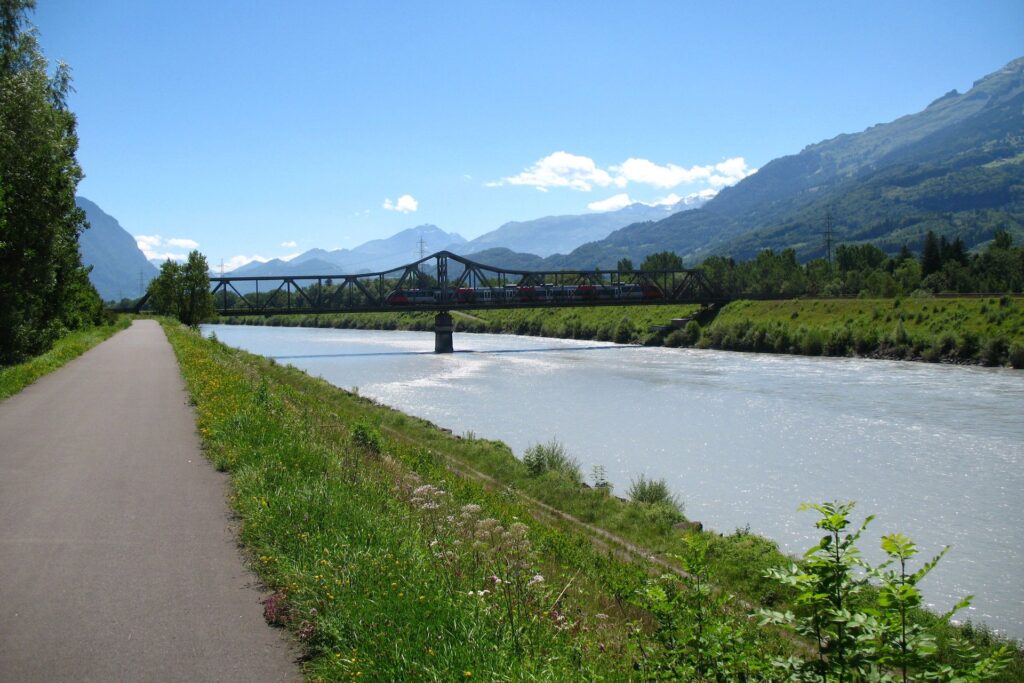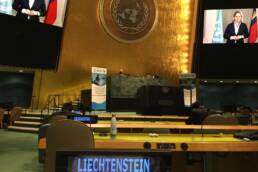Liechtenstein lectures the UN on saving water
The “Waterfootprint” project is a success. In the Principality of Liechtenstein, the renunciation of one inhabitant for one year of bottled H2O and 55 francs donated quench the thirst of one needy person
On Thursday, March 18, Katrin Eggenberger presented the project “Waterfootprint Liechtenstein” during the summit meeting on water of the United Nations General Assembly.
The initiative was initiated by the Life Climate Foundation Liechtenstein, the Drink & Donate association and the government of the Alpine Principality.
Switzerland-Liechtenstein pact on scientific innovation
The aim is to promote the use of tap water instead of bottled mineral water.
The principle of “Waterfootprint Liechtenstein” is very simple: “Drink tap water. Donate drinking water”.
With each “Water Footprint”, everyone can voluntarily refrain from buying bottled mineral water and, with a payment of just 55 Swiss francs per year, donate one year of safe access to drinking water for one person in a developing country.
Blockchain Act unanimously approved in Liechtenstein
This project promotes the sustainable use of drinking water and the resulting reduction of plastic and greenhouse gas emissions generated by bottling and transportation practices.

Along the “Young Rhine” a remarkable success
“I am proud of the fact that we in Liechtenstein currently have more ‘Waterfootprint’ than inhabitants. This is a unique achievement and a sign of greater sustainability and solidarity on an international level. I am particularly pleased that the state, all the municipalities and most of our companies are participating in this project.”
And again: “Together we are setting a positive example to the world. I am convinced that this initiative can also serve as a model for other countries”, said Foreign Minister Katrin Eggenberger in New York.
How Liechtenstein invented the enterprise state from scratch
With this initiative, Liechtenstein is making a direct contribution to the implementation of the United Nations Sustainable Development Goals (SDGs), which aim, among other things, to achieve access to clean water and sanitation for all by 2030.
The high-level meeting proceeded World Water Day on March 22, which promotes awareness and action to clean and protect a critical commodity.







